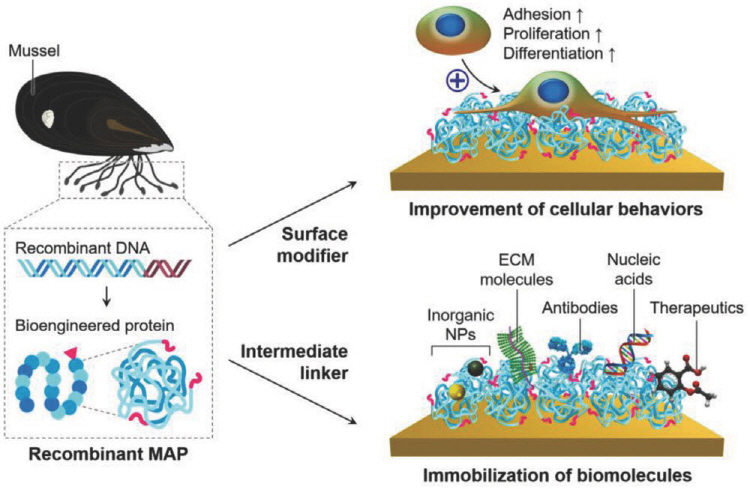
연구
Research Outcome
미래를 창조하는 포스텍 화학공학과
Biomimetic Surface Engineering of Biomaterials by Using Recombinant Mussel Adhesive Proteins
- Title of paper
- Biomimetic Surface Engineering of Biomaterials by Using Recombinant Mussel Adhesive Proteins
- Author
- [차형준교수 연구실-Hall of Fame Article]
- Publication in journal
- Advanced Materials Interfaces 2018, p1800068
- Publication date
- 20180330
[Abstract]
Surface engineering is a key approach for tailoring new functionalities into biomaterials to achieve better clinical performance. The rise of genetic engineering and molecular biotechnology made it possible to design artificial sticky proteins derived from marine mussels that are capable of firmly anchoring on a variety of substrates with high binding strength, opening a new route for surface engineering of biomaterials. Coatings of recombinant mussel adhesive proteins (MAPs) have aroused great interest for the surface functionalization of biomaterials due to their simplicity, versatility, and high stability under physiological conditions, as well as their favorable interactions with cells. In addition, recombinant MAPs can be engineered to provide desired specific functionalities on target surfaces by genetic fusion with functional peptides and/or by the immobilization of biomolecules. This review provides an overview of recombinant MAPs‐based surface coatings, highlighting their mechanisms, characteristic surface properties, and diverse applications in providing bioengineered surfaces in the fields of biomedical and tissue engineering.
DOI: 10.1002/admi.201800068
LINK: https://onlinelibrary.wiley.com/doi/full/10.1002/admi.201800068




